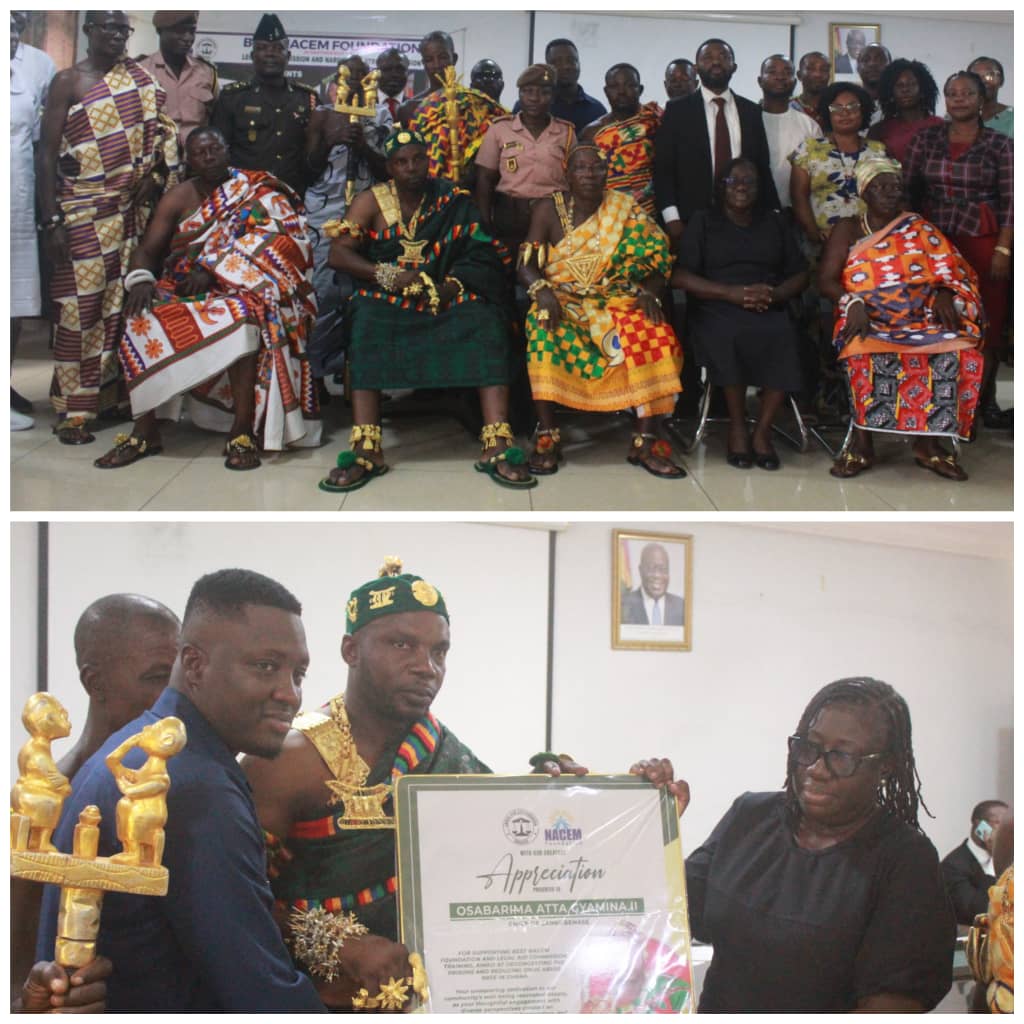By Emelia B. Addae
Koforidua, Sept. 27, GNA – Three institutions have joined forces to strengthen advocacy efforts in combating drug abuse.
The trio, NACEM Foundation, Legal Aid Commission, and Attorney-General (A-G) Department, recognised an urgent need to tackle the pressing social problem by pooling their expertise, knowledge, and resources to tackle the many facets of substance abuse in a holistic manner.
A training workshop on the theme: “The use of illicit drugs and its punishment: The role of stakeholders in sensitising the youth,” delved into illicit drug usage and its debilitating consequences, which continued to plague societies globally.
Mr Stephen Nana Afful, the Chief Executive Officer of the Best NACEM Foundation, shed light on the vital role that various stakeholders should play in raising awareness among the younger generation, urging a united front in advocating against substance abuse.
He stressed the importance of collective efforts in raising awareness and combating the societal challenge, and that advocacy efforts should focus on raising awareness of the behavioural health issues linked to drug abuse.
He underscored the profound impact of advocacy, saying it held the potential to transform lives as it ensured substance abuse prevention, curbed mental illness, reduced crime rates, and fostered a climate of academic motivation and achievement.
The workshop was organised by the Best NACEM Foundation, the Legal Aid Commission, and the Narcotics Control Commission with support from Richie Plantation Limited and Osabarima Attah Dwamena II, Chief of Sankubenase.
Traditional leaders, teachers, nurses, prison officers, and the media participated in the training.

Assistant Narcotics Control Officer, Worlanyo Wazila of the Eastern Regional Narcotics Control Commission, said school Awareness Clubs had been launched in the region to curb the dangers associated with drug abuse.
He said the Commission had also designed a drug awareness manual for the clubs with topics on leadership skills, communication skills, management, and coping skills.
He called on all stakeholders to get involved in the advocacy and fight against illicit drugs and drug abuse.
Mr Phidelis Osei Duah, the Eastern Regional Head of the Legal Aid Commission, said the Commission aided people who were unable to afford legal representation and access the court system.
It further provided access to justice by ensuring equality before the law, the right to counsel, and the right to a fair trial, and that the offices were opened to everyone with legal issues.
Mr Mustapha Mahama from the Attorney General’s Department gave an overview on drugs and their policies, as well as guidelines that control and regulate psychoactive substances, particularly those that were addictive and caused physical and mental dependence.
He said that it served as the foundation for the government’s obligation to guarantee that people had access to high-quality pharmaceuticals at affordable prices by implementing drug legislation, setting professional standards, and encouraging sensible drug usage.
Nana Asare Kumi III, the Chief of Okorase, said the consequences of the use of illicit drugs were devastating and called for increased sensitisation of the youth on the dangers of using these illegal substances.
He also noted that it was the collective responsibility of society to educate the younger generation about the dangers associated with illicit drug usage.
He called on all stakeholders, from influential figures to parents, religious institutions to educational establishments and even correctional facilities and civil society organisations, to provide unwavering support to the youth grappling with drug addiction.
“We risk paying dearly for it in the near future if we fail to provide the youth with the necessary support now,” he said.
He advised the youth, who engage in illicit drugs, to take the necessary steps to free themselves from that captivity and start new way of lives, to secure their future.
GNA